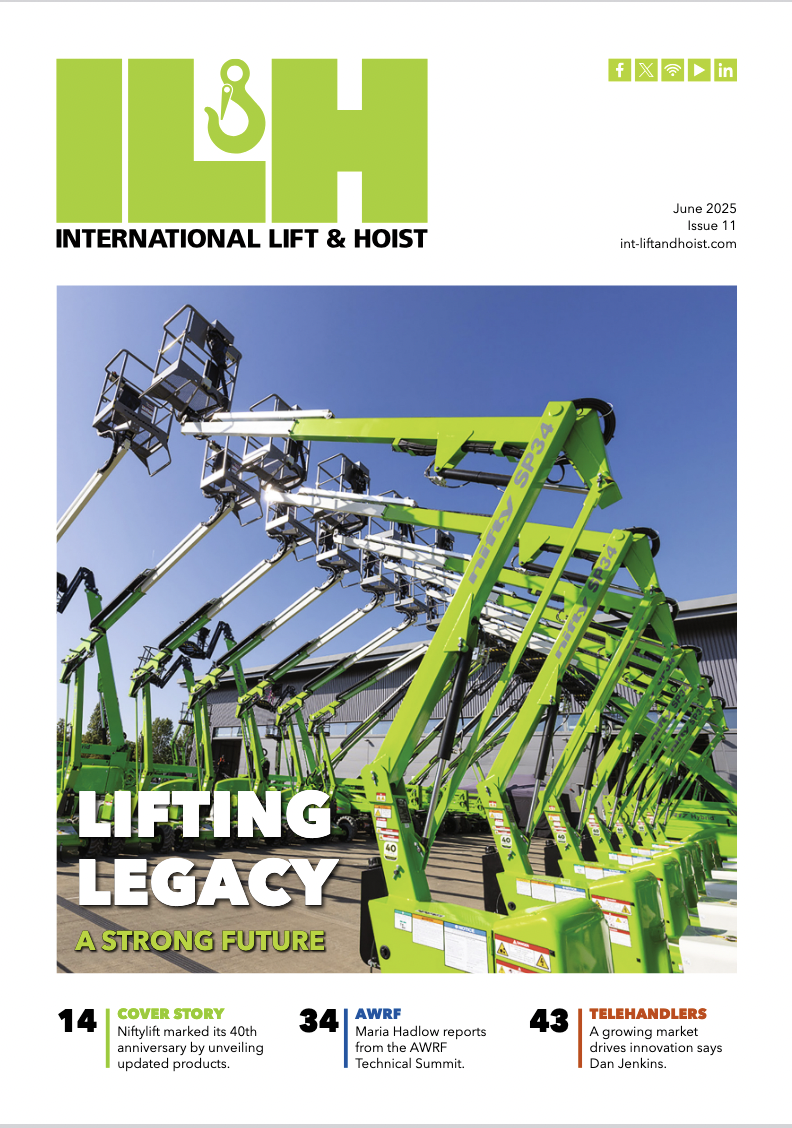)
The Magic 8-Ball
Never have we faced so many contrary and unknown forces, and it’s made for some awkward cueing, says Doug Stitt, president and CEO at The Caldwell Group Inc.
“Doug, your next column is due,” the editor said. “Can you do something on the state of the market, please?”
So, I’ve chalked up, white ball up against the cushion, bridge hand arced, knuckles white.
“Your readers want me to clean the table?” I reply. “From here?!”
I remember reading a piece in these pages by Charlie Pullin, our CFO, titled, ‘Fortune Telling’ [Sept. 2020], in which he said forecast models necessarily will include more variability in assumptions. He anticipated then, modelling will be more complex, such that there will be probability estimates assigned to different possible outcomes. How relevant that guidance was—and is.
This ain’t billiards—it’s Magic 8-Ball. There’s no point bemoaning the lack of a crystal ball, either, Charlie, because if you had one it’d be cloudy. More likely, it’d glitch.
I remember thinking along similar lines back in 2008, and again in the depths of Covid. But if those times were hair-raising, we really are now in uncharted waters. ‘Unprecedented’ has become one of the words of the decade, but it’s never been more apt. The problem was we just uttered it too readily a while back. I don’t think that ever before have we faced so many contrary and unknown forces. Luckily, this magazine’s editor didn’t ask me to confirm whether, at least here in the US we’re an economy in recession, although I could tell it was on the tip of her tongue.
Even this past week, I’ve watched one business news broadcast where an expert reported that we won’t see a recession until next year, and another one where an analyst of equal repute, said that we’re already in one. What? Every macro factor and issue are at play right now: government spending, inflation, war, labour, etc, etc, etc.
Them’s the breaks
Talking of news bulletins, did you see outgoing UK Prime Minister Boris Johnson’s ‘exit’ speech?
“…I want you to know how sad I am to be giving up the best job in the world. But them’s the breaks,” he said.
I didn’t know Brits even said, ‘Them’s the breaks,’ but it resonated with me, regardless. If you can walk out of one of the biggest jobs in the world citing a few unfair or unpleasant things happening to you, maybe that’s what Charlie and I should be saying to each other over lunch. There’s your article tagline, ed—them’s the breaks.
You could certainly apply it today to the current economic environment. Further, there’s a certain level of fatigue right now for companies in dealing with inflation, supply chains, and scarce labour, but that is how the balls have run. While we would prefer to be operating in a different situation, them’s the breaks, indeed.
Johnson can (one day, maybe) walk out of Number 10 Downing Street, but boardrooms are sometimes harder to escape. Not that Charlie and I are looking for a way out, but we need to find ways through. And that’s not easy. It’s a conundrum. At the same time we are talking about getting materials and covering price increases, we are also talking about the potential for deflation or stagflation. Additionally, we are finding extra labour as well as pondering what we do if there is a recession and how we retain the people we have.
Prototypical recession discussions are based on depth and length. In a typical recession, there’s a drop in demand and the supply of materials, labour, etc, becomes more readily available. Now we are possibly looking at a recession with very low unemployment and 11 million unfilled jobs (here in the US). We are also potentially looking at a recession where materials aren’t cheaper and more readily available but still high in price and, due to the ongoing supply chain issues, spotty availability of different items will endure. You see why it really is unprecedented this time.
The shape of the recession at the time of Covid (I use the past tense for context) was definitely a very popular and relevant point of discussion. Feeling like we are past the non-traditional shapes, I believe most people believe that the next recession will be more traditional in shape, with the pertinent questions again being length and depth.
Buzzwords are probably best avoided. It’s like getting a better idea of how you feel about someone without using words like ‘love’ and ‘hate’. At the end of the exercise, you might have a clearer picture than if you conformed to phraseological norms. Economic forecasting is like that too. What do ‘inflation’, ‘deflation’, ‘stagnation’, and so on really mean in today’s world? Are they even defunct? That’s part of the challenge. ‘Inflation’ is still relevant to historical standards, but ‘recession’ looks different than what the historical definitions would be. As discussed, in what textbooks are economical climates like this – with millions of unfilled jobs?
In conclusion, businesses are finding themselves battening down the hatches and clearing the storm bunkers in the mornings, then updating their recruitment ads in the afternoon. We are actively recruiting for a variety of skills and positions. With that said though, we are having just as many conversations about what we will do with our folks if there is a significant slowdown in demand.
On time is late
‘Early is on time, on time is late, and late is unacceptable,’ wrote Eric Jerome Dickey. Or that’s the idea.
‘Lead time’ is something people like talking about, but from that perspective we’ve fortunately been able to do a pretty good job. We rebuilt inventories for stock products after the initial Covid slowdown and our ability to find and retain people as well as secure most core materials have allowed us to be consistent with delivery times overall.
‘On-time,’ is a little different. While our on-time levels continue to improve from Covid, spot interruptions due to supply chain issues are what causes unexpected pain. While the delays are generally short, it still causes a difference between when an order was due and when it can go. It’s really an unpredictable environment for material, which also impacts timeliness.
We’ve had situations where a vendor tells us that our next order of motors is going to be delayed and the next day, they show up. Certainly, there are many other situations where the delays are real and at times longer than originally (re)promised. If you ask about steel availability, the general answer is ‘ok’. But when you talk about specific steel items, some are readily available, while others have extended lead times. There’s yet more evidence of the contradiction of this environment for your latest ‘state of the market’ report.
All this means that never has it been more important to minimise macro noise on the outside and prevent it from undermining what you are doing on the inside. This is especially the case right now with so many things going on in addition to all the contrary and confusing indicators. Unfortunately, the nature of recessions and certain other macro phenomenon are in part psychological. Enough people talk about a slowing economy, businesses cut back and soon enough, the fear of recession becomes a reality.
We’ve probably operated with a little bit more of a short-term perspective over this past year, focussing on what we need to do as a business and only focusing on the outside noise that we think potentially impacts the window that we are operating in. As Charlie has put it before, businesses need to decide if they will stick with a single forecast for a given period, or if there will be a forecast range used for key categories. This doesn’t mean we are ignoring long-term planning, but we are realistic about what we think we can interpret from daily macro events. For example, we are not going to pretend we can forecast macro events in a longer-term window when the so-called ‘experts’ are so divergent on their views.
Company Daily
Each individual company has its own microclimate. The only news broadcast that really matters is one it makes itself. But there’s no single anchor-person. In the past, it’s been a case of identifying the one or two spokespeople that can speak for the state of your company. In this environment, though, it’s really all hands on deck when you consider all the things companies are facing.
It’s not just revenues or what the customer is saying, but how to survive. Think about proper issues of price, margin preservation, cost control, hiring, worker development, supply chains, etc. They are all critical to a company’s ability to navigate. Therefore, HR, accounting, purchasing, and manufacturing are all helping to stay on top of today’s challenges.
Consider things from a pricing standpoint. With all the inflation companies have seen during this period, accounting, purchasing, sales, and manufacturing are working to make sure that we are trying to protect margins, get materials in, identify substitutes where materials aren’t available, communicate with customers and so much more.
It’s truly a time of team
All good news bulletins end with a feel-good story, or at least they used to before the last item wasn’t about another Covid outbreak, war, recession, or a backlog at a local port. So, what’s Caldwell Daily’s uplifter? Well, it’s the same for any business. If you are still here and making some money, you’ve likely figured out new, better, and different ways for your organisation to operate. It would be hard to imagine a business that hasn’t had to change and evolve in some ways recently. Think of the swerves, banks, and jump-shots you’ve played and make a showreel to replay during the low moments. Put everyone’s name in the credits.
So, having been put in an unenviable position by the editor, how did I do?
Rack ‘em up. Your break-off.











